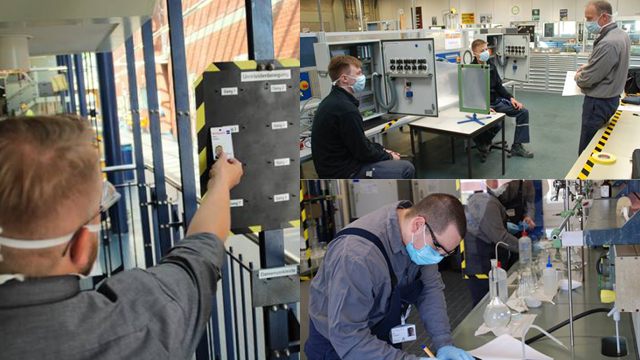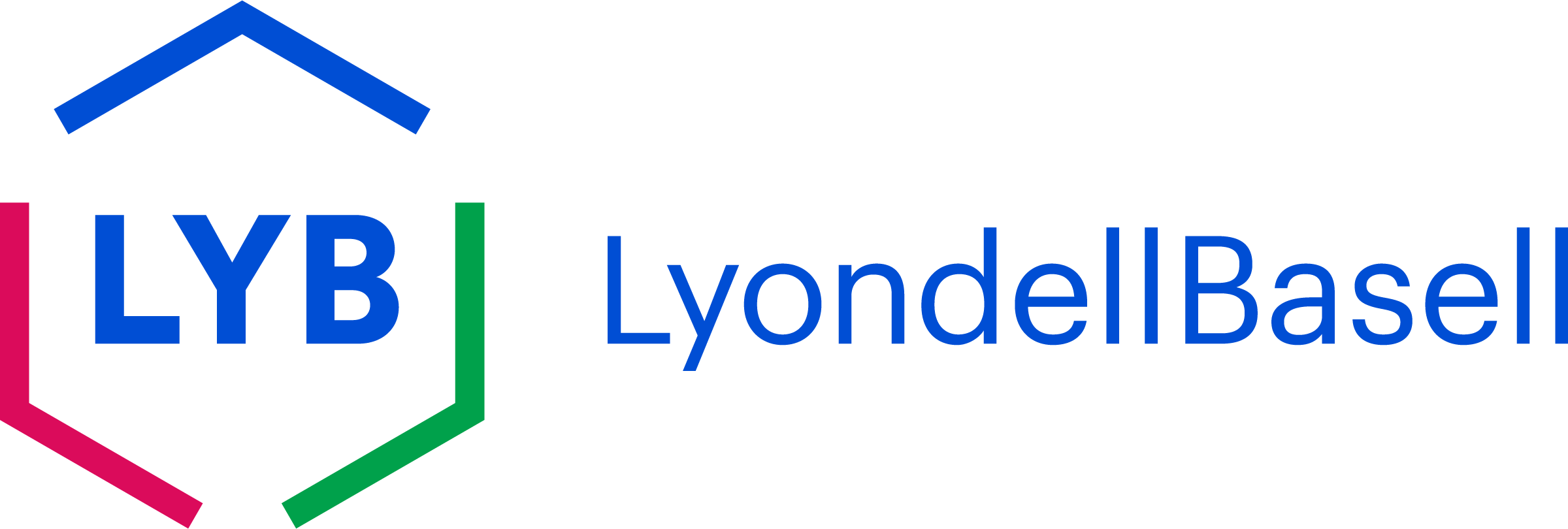Training is essential for industrial companies, especially given the general shortage of skilled workers. When approximately 150 apprentices at LyondellBasell’s Wesseling/Knapsack site in the south of Cologne, Germany, were sent home in mid-March due to contact restrictions related to COVID-19, suspending the training and education needed was not an option.
LyondellBasell is nationally recognized in Germany for the quality of its training program, and the team was intent on creating new solutions to ensure its apprentice program continued despite COVID-19. The LyondellBasell team had the industry’s future chemical technicians, industrial mechanics, electronics technicians and industrial clerks to consider. These apprentices would be the next generation responsible for manufacturing products we use every day.
"We decided to continue the training with homeschooling,” said Klaus Vollmert, responsible for training at the Wesseling location. "To do this, we prepared the theoretical training content that was on the learning plan for the next few months and made it available to the trainees in various ways."
Providing new ways to continue their education would prove to be complex, as the individual training courses had different technological requirements. While the electronics technicians were already equipped with laptops since the beginning of their training to carry out individual programming tasks online, the teaching material had to be prepared for others in paper form. The lessons themselves were then carried out either by online classroom or email, video meeting or individual advice over the phone.
"We overestimated the technical affinity among the youngsters and many came into contact with platforms such as Microsoft Teams for the first time," says Klaus Vollmert. “In the future, the new trainees will receive training in these software solutions from our IT specialists at the beginning of their training in order to be prepared for a possible next emergency. It is important to us to create the conditions to make our training more modern and digital. ”
After successfully finding solutions to ensure continued education and training, the group was faced with yet another hurdle – returning to the plant with new health and safety measures in place once contact restrictions were relaxed. Vollmert, along with employee representatives and a COVID-19 advice team, worked together to tackle the challenge of planning for the trainees to return to the site in compliance with the hygiene and social distancing regulations. At the core of the concept, which was drawn up in three weeks, the trainees were divided into four groups, which then were allocated fixed times for arrival and departure. During breaks, the groups maintained the necessary distance from one another.
At the changing rooms, common work areas, and seminar and break rooms, the distance regulations were ensured by barriers, access regulations and permanently assigned seats. If not already open, doors in the entire training area were opened using paper towels. Trainees also wore masks in all areas of the training center. In addition, early and late shift training was carried out to intercept peak periods.
Globally, sites across LyondellBasell have focused on ensuring certain procedures are in place to protect the health and safety of employees returning to the workplace. Although the regulations and measures present a “new normal”, employees recognize the benefits.
“Our trainees have been highly accepting of the new measures, and we are considering implementing some of the procedures permanently,” said Vollmert.
#LYBProud


